Junkie - Confessions of an Unredeemed Drug Addict
Junkie (also published as Junky) is a semi-autobiographical novel by William S. Burroughs, first published in 1953 as an Ace Double with Narcotic Agent by Maurice Helbrant. Written in a candid and straightforward style, it offers a harrowing account of Burroughs' own experiences as a heroin addict in New York City. The narrative provides an unflinching look at the dark and destructive world of drug addiction, exploring themes of desperation, degradation, and the constant struggle to secure the next fix. A seminal work, Junkie provides valuable insights into both the mind of an addict and the drug subculture of the 1950s.
Softcover. First Edition, Paperback Original. Ace Double D-15 ($0.35). New York: Ace, 1953. Maynard and Miles A1. #10695.
One of the nicer copies seen. Minor creasing at the top of front cover, else fine, unread copy with nearly perfect, uncreased spine and hardly any other wear. A superior copy.

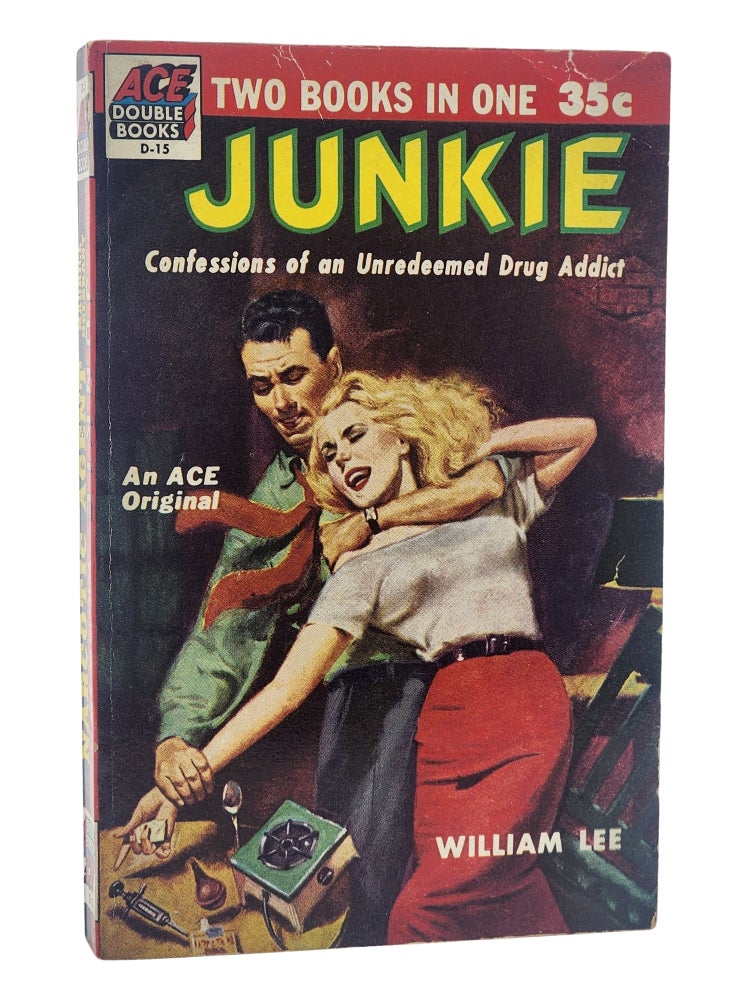
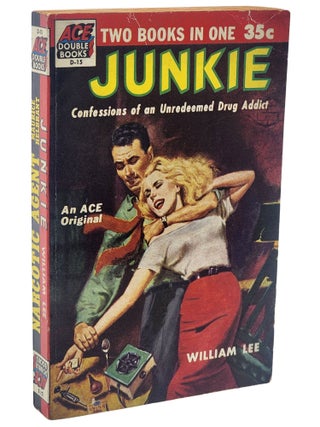
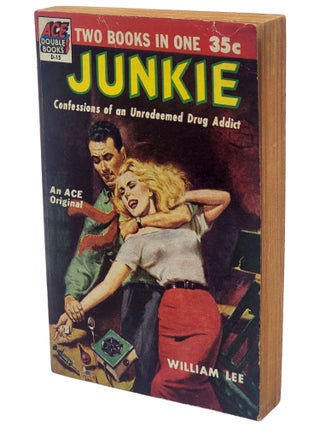
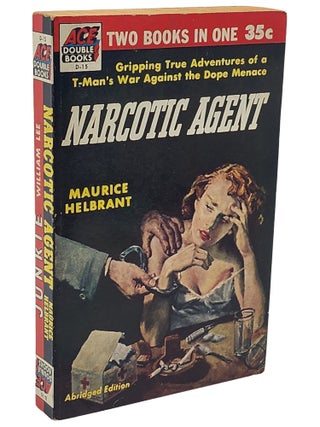
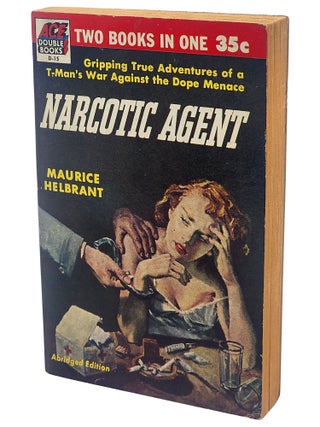
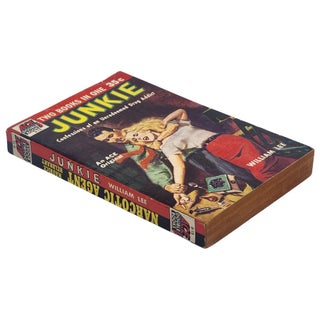

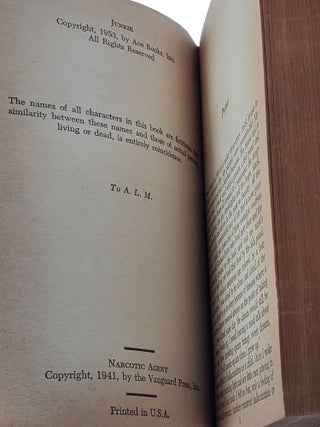
William S. Burroughs' Junkie (1953), later re-titled Junky, is a semi-autobiographical novel that delves deeply into the author’s experiences with drug addiction. The narrative is told in the first person, following protagonist Bill Lee through the streets of New York City, as he navigates a perilous life addicted to heroin. Lee, much like Burroughs himself, is a man ensnared by the allure of drugs, relentlessly pursuing the highs and inevitably succumbing to the lows of addiction.
The novel is stark in its portrayal of the drug subculture, unveiling the desperate and often criminal measures addicts take to secure their next dose. Burroughs does not romanticize addiction; instead, he provides a raw and unfiltered glimpse into its bleak reality. Throughout the story, readers witness the protagonist’s inner turmoil and external struggles, reflecting the author’s own battle with dependency.
Junkie also explores the dynamics of addiction against the broader societal backdrop of the 1950s, a time when drug use was highly stigmatized and criminalized. The work is significant for its honest and unapologetic depiction of the addict’s life, serving as a crucial text in both American literature and the canon of works exploring drug addiction. With its gritty realism and unvarnished prose, Junkie stands as a compelling testament to the devastating power of addiction, offering readers an unforgettable journey into the depths of one man’s struggle for redemption amidst despair.